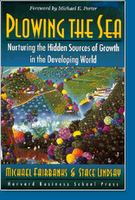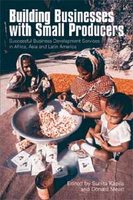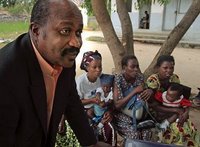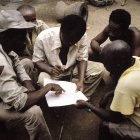The temptation to choose the path of gigantism is overwhelming, at least for an American business hero. Why Gates and his wife Melinda, who already have by far the world's largest foundation, with more than $30 billion in assets, would want an even better-endowed outfit, is understandable. Gates intends to cure some of the world's most awful diseases, such as malaria and HIV/AIDS, that plague the lives of tens of millions of people across the planet...The Canadian health economist Anne-Emanuelle Birn has criticized Gates' foundation for taking the wrong approach on African health care by emphasizing technological fixes while ignoring the unequal distribution of resources common in African countries.
In a widely cited 2005 article in the Lancet,Birn wrote that Gates has "a narrowly conceived understanding of health as a product of interventions divorced from economic, social, and political contexts." She argues that Gates must inevitably deal with messy questions about government performance and inequities in African societies that contribute to the spread of illness as much as any technological failures do.
via AfricaWorks















